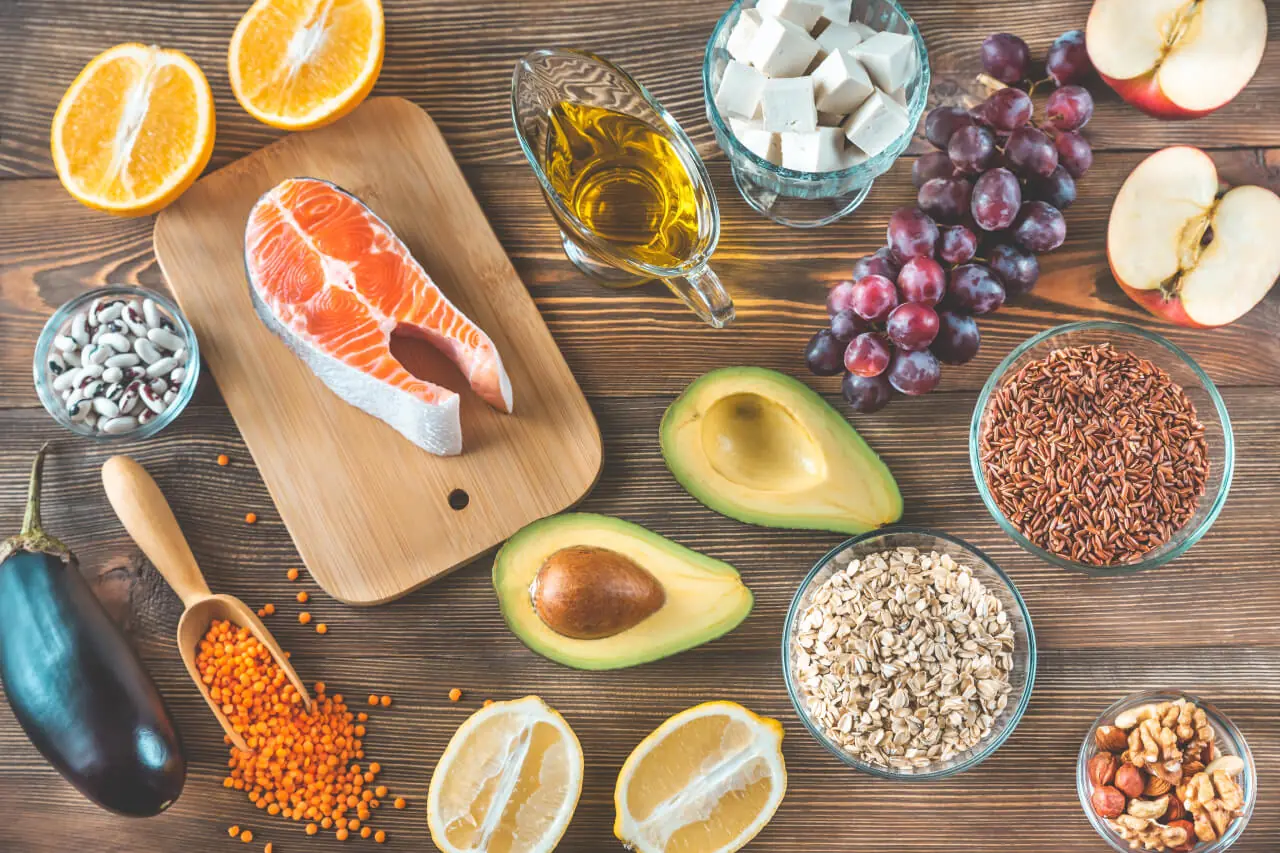Inflammation is a natural response of the body’s immune system to injury or infection.
However, chronic inflammation, which is a low-grade inflammation that persists over time, is linked to various chronic diseases, including heart disease, cancer, arthritis, and Alzheimer’s disease.
Inflammation is a natural and essential part of the body’s immune response to injury, infection, or harmful stimuli.
It is a complex biological process that involves the activation of immune cells, blood vessels, and molecular mediators to eliminate the cause of cell injury, clear out damaged cells and tissues, and initiate tissue repair.
While acute inflammation is a protective and localized response crucial for healing, chronic Inflammatory can have a detrimental impact on overall health.
Prolonged activation of the immune system, often triggered by factors like poor diet, sedentary lifestyle, stress, and environmental toxins, can lead to chronic inflammation.
This persistent state is associated with various health issues, including cardiovascular diseases, autoimmune disorders, and certain cancers.
Chronic inflammation can manifest subtly and contribute to a range of symptoms such as fatigue, joint pain, and digestive problems.
Over time, it becomes a silent contributor to the development of long-term health conditions.
The good news is that diet plays a significant role in managing inflammation.
Incorporating anti-inflammatory foods into your diet can help reduce inflammation and lower your risk of chronic diseases
Recognizing it’s role in disease processes highlights the importance of adopting lifestyle and dietary practices that promote a balanced and anti-inflammatory environment within the body.
Unmasking the Culprits: Foods that Trigger Inflammation
While our bodies possess remarkable resilience, certain dietary choices can exacerbate chronic inflammation.
Identifying and limiting these inflammation-promoting foods is crucial for preventing chronic diseases and promoting overall health.
- Refined carbohydrates: Refined carbohydrates, found in white bread, pasta, sugary cereals, and white rice, elevate blood sugar levels, leading to inflammation.
- Processed meats: Processed meats, such as hot dogs, bacon, sausage, and deli meats, contain preservatives, nitrates, and nitrites, which contribute to inflammation.
- Fried foods: Fried foods, like French fries, fried chicken, and other deep-fried items, are loaded with pro-inflammatory compounds and unhealthy fats.
- Sugary drinks: Sugary drinks, including soda, fruit juices, and sweetened coffee beverages, contribute to excess calorie intake, weight gain, and inflammation.
- Excessive alcohol consumption: Excessive alcohol consumption disrupts gut health, increases oxidative stress, and promotes inflammation.
Embracing the Allies: A Guide to Inflammation-Fighting Foods
Nature provides an abundance of anti-inflammatory foods that can help reduce inflammation and promote overall health.
Diet plays a pivotal role in modulating Inflammatory within the body, acting as a powerful tool that can either fuel or dampen the inflammatory response.
The types of foods we consume influence the production of pro-inflammatory and anti-inflammatory molecules, ultimately shaping the body’s inflammatory environment.
Here are some key categories to incorporate into your diet:
- Pro-Inflammatory Foods:
- Diets high in refined sugars, saturated fats, and processed foods can contribute to the production of pro-inflammatory molecules.
- These foods may activate immune cells and trigger an inflammatory response.
- Anti-Inflammatory Foods:
- On the contrary, a diet rich in anti-inflammatory foods, such as fruits, vegetables, whole grains, fatty fish, and nuts, provides essential nutrients and compounds that help modulate inflammation.
- These foods contain antioxidants, omega-3 fatty acids, and phytochemicals that have anti-inflammatory properties.
- Balancing Omega-3 and Omega-6 Fatty Acids:
- Achieving a proper balance between omega-3 and omega-6 fatty acids is crucial.
- While omega-3 fatty acids found in fatty fish, flaxseeds, and walnuts have anti-inflammatory effects, an excess of omega-6 fatty acids, prevalent in vegetable oils and processed foods, can promote inflammation.
- Gut Health and Inflammation:
- The gut microbiota plays a significant role in regulating inflammation.
- A diet rich in fiber, prebiotics, and probiotics supports a healthy gut microbiome, fostering an environment that mitigates inflammation.
- Moderation and Variety:
- Moderation and variety in food choices contribute to a well-rounded and balanced diet.
- Avoiding excessive calorie intake and incorporating a diverse range of nutrient-dense foods can help manage inflammation.
- Hydration:
- Staying adequately hydrated is essential for overall health and can aid in reducing inflammation.
- Water helps flush out toxins and supports the body’s natural detoxification processes.
- Individualized Approaches:
- It’s important to recognize that individuals may respond differently to specific foods.
- Adopting an individualized approach to nutrition, considering factors such as food sensitivities and allergies, can be beneficial in managing inflammation.
12 Top Inflammation-Fighting Foods
1. Fatty Fish:
Rich in omega-3 fatty acids, salmon, mackerel, and sardines have potent anti-inflammatory properties.
2. Berries:
Blueberries, strawberries, and raspberries are packed with antioxidants that combat oxidative stress and inflammation.
3. Leafy Greens:
Kale, spinach, and Swiss chard contain anti-inflammatory compounds, including vitamins, minerals, and phytochemicals.
4. Turmeric:
Curcumin, the active compound in turmeric, has strong anti-inflammatory and antioxidant effects.
5. Extra Virgin Olive Oil:
Olive oil contains oleocanthal, which exhibits anti-inflammatory properties similar to ibuprofen.
6. Nuts and Seeds:
Almonds, walnuts, flaxseeds, and chia seeds provide omega-3 fatty acids and antioxidants.
7. Tomatoes:
Tomatoes are rich in lycopene, an antioxidant with anti-inflammatory benefits.
8. Green Tea:
Epigallocatechin gallate (EGCG) in green tea has anti-inflammatory and antioxidant effects.
9. Broccoli:
Broccoli is a cruciferous vegetable that contains sulforaphane, known for its anti-inflammatory properties.
10. Ginger:
Gingerol, the bioactive compound in ginger, has anti-inflammatory and analgesic effects.
11. Dark Chocolate:
Dark chocolate with high cocoa content contains flavonoids that may reduce inflammation.
12. Avocado:
Avocados are rich in monounsaturated fats and antioxidants, contributing to anti-inflammatory effects.
Tips to Easily Include These Foods in Your Daily Meals.
Smoothie Boosters
Add a handful of berries, a spoonful of ground flaxseeds, and a splash of green tea to your morning smoothie for a quick anti-inflammatory boost.
Salad Staples
Toss leafy greens, tomatoes, and avocado into your salads.
Drizzle with extra virgin olive oil and sprinkle with nuts or seeds for added flavor and nutrition.
Turmeric in Cooking
Incorporate turmeric into your cooking by adding it to soups, stews, and curries.
Pair it with black pepper to enhance its absorption.
Snack on Nuts
Keep a mix of nuts (such as almonds and walnuts) handy for a convenient and nutritious snack.
Add them to yogurt or enjoy them on their own.
Dark Chocolate Delight
Indulge in dark chocolate with high cocoa content as a dessert.
Enjoy it in moderation to satisfy your sweet cravings while benefiting from its anti-inflammatory properties.
Fatty Fish Dinners
Include fatty fish (like salmon or mackerel) in your weekly dinner rotation.
Grill, bake, or pan-sear for a delicious and health-promoting meal.
Green Tea Breaks
Swap your regular beverage with green tea.
Enjoy it hot or cold throughout the day to benefit from its anti-inflammatory and antioxidant effects.
Ginger Infusions
Make ginger tea by steeping fresh ginger slices in hot water.
Alternatively, add grated ginger to your dishes for a flavorful and anti-inflammatory kick.
Whole Grain Additions
Choose whole grains like quinoa or brown rice as a base for your meals.
These grains complement anti-inflammatory foods and provide additional nutrients.
Vegetable Stir-Fries
Prepare colorful vegetable stir-fries using broccoli, bell peppers, and other veggies.
Use olive oil for cooking and add spices like turmeric and ginger for flavor and health benefits.
Avocado Toast
Enjoy avocado on whole-grain toast for a nutrient-packed breakfast or snack.
Sprinkle with a pinch of salt and pepper for added taste.
Plan Balanced Meals
Plan your meals to include a variety of anti-inflammatory foods.
Aim for a colorful plate, incorporating fruits, vegetables, lean proteins, and healthy fats.
Lifestyle Factors that complement an anti-inflammatory diet
In addition to adopting an anti-inflammatory diet, certain lifestyle factors can complement and enhance its effectiveness in reducing inflammation.
Here are key lifestyle considerations:
Regular Physical Activity
Engage in regular exercise, incorporating both aerobic activities and strength training.
Exercise helps reduce inflammation, improve circulation, and support overall cardiovascular health.
Adequate Sleep
Prioritize getting sufficient and quality sleep each night.
Lack of sleep can contribute to inflammation and negatively impact the body’s ability to regulate the immune response.
Stress Management
Practice stress-reducing techniques such as meditation, deep breathing exercises, yoga, or mindfulness.
Chronic stress can contribute to inflammation, and managing stress is crucial for overall well-being.
Hydration
Stay well-hydrated by drinking an adequate amount of water throughout the day.
Proper hydration supports the body’s natural detoxification processes and helps maintain optimal bodily functions.
Avoiding Tobacco and Limiting Alcohol
Quitting smoking and limiting alcohol intake are important for reducing inflammation and preventing related health issues.
Maintaining a Healthy Weight
Achieve and maintain a healthy weight through a combination of a balanced diet and regular physical activity.
Excess body weight can contribute to chronic inflammation.
Social Connections:
Foster strong social connections and maintain positive relationships.
Social support can have a protective effect on mental and physical health, influencing inflammation.
Limiting Environmental Toxins
Be mindful of exposure to environmental toxins and pollutants.
Minimize exposure where possible, such as using natural cleaning products and avoiding unnecessary exposure to pollutants.
Regular Health Check-ups
Schedule regular health check-ups and screenings.
Monitoring key health indicators allows for early detection and management of potential health issues related to inflammation.
Mindful Eating Habits
Practice mindful eating by paying attention to hunger and fullness cues.
Avoiding overeating and mindless snacking supports digestive health and can contribute to an anti-inflammatory lifestyle.
Sun Exposure for Vitamin D
Obtain moderate sun exposure to ensure adequate vitamin D levels.
Vitamin D plays a role in immune function and may help modulate inflammation.
Limiting Processed Foods
Minimize the consumption of processed and refined foods, as they often contain additives and unhealthy fats that may contribute to inflammation.
Conclusion
In conclusion, embracing an inflammation-fighting lifestyle is a powerful investment in your well-being.
From incorporating nutrient-rich foods like fatty fish, berries, and leafy greens to practicing stress management and staying physically active, each step plays a crucial role in maintaining a balanced and inflammation-free life.
By understanding the impact of your dietary choices, nurturing a healthy gut, and considering the wealth of anti-inflammatory compounds found in everyday foods, you empower yourself to take charge of your health.
Remember, it’s not just about what you eat but also how you live—prioritize quality sleep, manage stress, and stay active.
In making informed choices, you not only reduce the risk of chronic inflammation-related conditions but also enhance your overall vitality.
Small, sustainable changes can yield significant benefits over time.
So, embark on this journey towards a vibrant, inflammation-free lifestyle, and let your choices become the foundation for a healthier, more resilient you.
Your body will thank you for the investment in the long-lasting gift of well-being.
FAQs
What are the key benefits of incorporating inflammation-fighting foods into my diet?
Including inflammation-fighting foods can help reduce inflammation, support overall immune health, and lower the risk of chronic conditions such as cardiovascular disease and certain cancers.
These foods are also rich in antioxidants, promoting a well-rounded approach to health.
Can I find these inflammation-fighting foods easily in my local grocery store?
Yes, many of these foods are readily available in most grocery stores.
Fatty fish, berries, leafy greens, and other staples can be found in the produce and seafood sections.
Opt for fresh, whole ingredients to maximize their nutritional benefits.
How can I incorporate these foods into my daily meals without spending too much time in the kitchen?
Quick and easy options include adding berries to your morning yogurt, incorporating leafy greens into salads, or making a simple stir-fry with vegetables and fatty fish.
Preparing smoothies with anti-inflammatory ingredients is another time-efficient and nutritious choice.
Are there specific recipes or meal plans available to help me include these foods in my diet?
Absolutely! There are numerous online resources and cookbooks dedicated to inflammation-fighting recipes.
Look for meal plans that feature a variety of these foods to ensure a balanced and enjoyable approach to incorporating them into your daily meals.
Can these foods help with weight management as well?
Yes, many inflammation-fighting foods are nutrient-dense and support a healthy weight.
The emphasis on whole, unprocessed foods, along with regular physical activity, can contribute to weight management and overall well-being.
Are there any potential side effects or considerations I should be aware of when adopting an inflammation-fighting diet?
While these foods are generally well-tolerated, it’s essential to be mindful of individual allergies or sensitivities.
Additionally, if you have specific health concerns or conditions, consulting with a healthcare professional before making significant dietary changes is advisable for personalized guidance.





